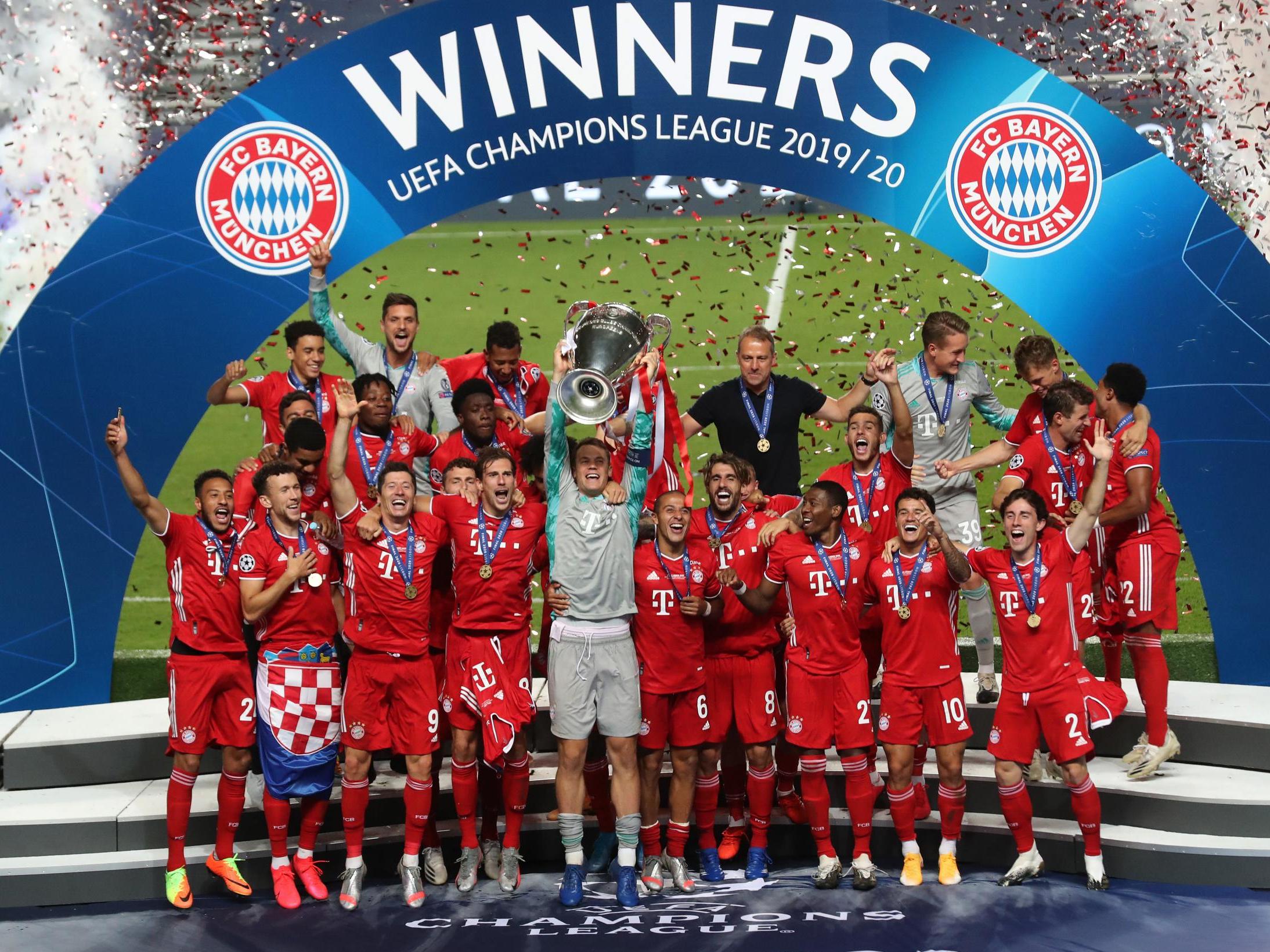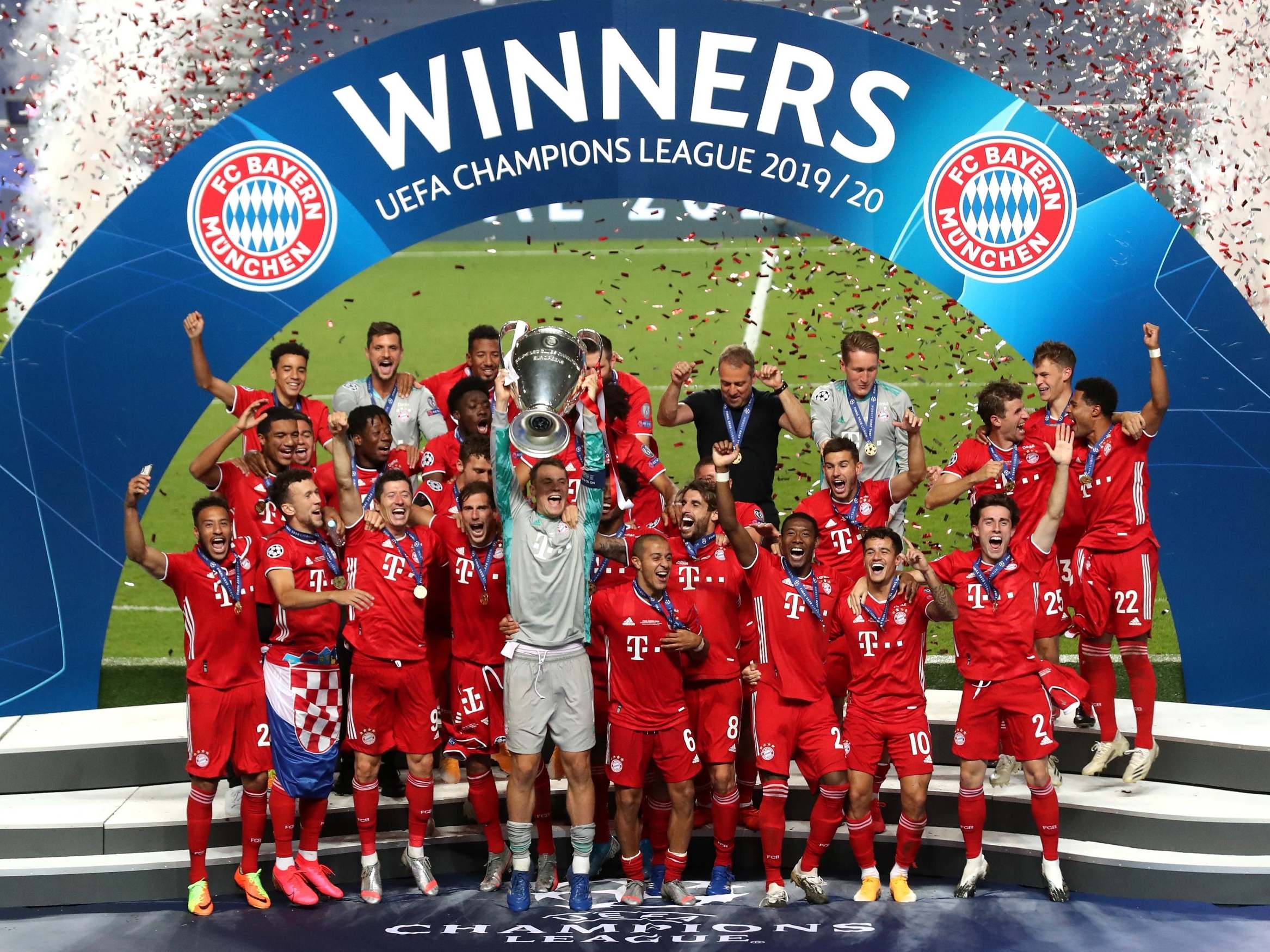What can we learn from the strangest of Champions Leagues?
A new format, winner and style of play leaves much to ponder at the highest level of the European game

Your support helps us to tell the story
From reproductive rights to climate change to Big Tech, The Independent is on the ground when the story is developing. Whether it's investigating the financials of Elon Musk's pro-Trump PAC or producing our latest documentary, 'The A Word', which shines a light on the American women fighting for reproductive rights, we know how important it is to parse out the facts from the messaging.
At such a critical moment in US history, we need reporters on the ground. Your donation allows us to keep sending journalists to speak to both sides of the story.
The Independent is trusted by Americans across the entire political spectrum. And unlike many other quality news outlets, we choose not to lock Americans out of our reporting and analysis with paywalls. We believe quality journalism should be available to everyone, paid for by those who can afford it.
Your support makes all the difference.After Bayern Munich offered the statement win that will be remembered, Paris Saint-Germain’s Ander Herrera offered the statement that resonated. The midfielder had been asked whether he’d become accustomed to playing without supporters, and responded abrasively.
“It’s shit”.
Out of the norm as Herrera’s language was, it was an important reminder of how out of the norm the situation is, just as there is a danger of getting accustomed to it.
The Champions League final did actually feel particularly odd in that regard, precisely because it the fixture is usually the centre of the world on the weekend it takes place, ensuring the host city is teeming with life and atmosphere. There was a sense of artifice about Sunday night, even if Bayern will of course go down as legitimate European champions. It just didn’t have the same sense of gravitas. It did feel so much lesser a night without 70,000 people making it mean more.
These are the kind of logical compromises the game is making, that such a fixture brings to the fore.
While it can be misleading to read too much into any single Champions League season – consider last year’s English domination for example – the final itself still serves as the barometer for the game, and this has quite a reading. It brings to a head the longest, strangest season.
It will go down in history as the strangest of Champions League finals. The biggest event in modern sport was for once directly watched by so few people. The key moments from a Champions League final are naturally replayed more than most fixture over the years, so these will now always be documents of how strange football was at this time as much as Bayern’s win.
That’s of course if it is only this time. We don’t know how long the Covid-19 situation is going to last, and it is the continental game that suffers most in football. The virus has made the very idea of cross-border travel so logistically problematic. It is entirely possible the game requires similar adaptations in future. If so, this period has at least represented a road map.
As to whether that map includes this 2020 finals format, that’s one of the bigger questions.
Uefa president Aleksander Ceferin declared his tentative approval last weekend, and hinted at future discussions.
“I have to say that this system of one match seems more interesting to me than the other system with two-legged matches,” he told agencies. “I think in September or October, we have to start to seriously speak.”
Some key figures would back those talks, as would certain broadcasters.
The major clubs, however, are said to be dead against it. That’s because it means giving up the revenue of extra fixtures. That is likely where the discussion starts and ends. That’s somewhat ironic, given that this format had been heralded as what a future super league might look like. It wasn’t as much to their liking as many might have expected.

It also feels a bit reactive to immediately declare this format superior. It really shouldn’t be forgotten that the Champions League latter stages have over the last few years offered some of the most sensational football ever seen, particularly through the comebacks that two legs allow. There’s a strong argument it’s the highest level football has ever reached, and feels a stretch to say these finals got close to that, let alone surpassed it.
There’s also the problem that the return of fans would offer far too many logistical issues for any one city to host a Champions League last eight. It would have to be stretched over cities in one country. It feels the only way we see these finals again is through the effects of Covid-19 – which no one wants.
If we are not necessarily entering a new era in terms of structure, though, we may well be entering a new era in terms of star. The absence of Lionel Messi and Cristiano Ronaldo from the semi-finals for the first time since 2005 feels far more relevant than the absence of English, Spanish and Italian clubs for the first time since 1991.
The latter feels a mere coincidence of results and the draw. Manchester City could just as easily have got through in another season. The former seems a reflection of their advanced age, as well as the first steps in a post-Messi/Ronaldo era. Younger players are ready to rise.
That in itself points to how the great duo reflect a growing issue between superclubs.
This final between old money and new money, after all, did feel a marker in how we’re moving into the second stage of that era, too. It is by now undeniable the Champions League has become the preserve of the superclub. The eliminations of Atalanta and RB Leipzig ultimately only illustrate this further. What is intriguing is how decisive differences are developing between the superclubs themselves. They all have money, but not all have the same types of ideas or identies, or even teams.
Those performing best – like Bayern Munich, like Liverpool, perhaps like Chelsea – are those with an efficient profile of squad, all gathered together because they fit into a clear way of playing.
Those that are ailing are those with bloated squads, and a lot of experienced players on huge contracts that are hard to get rid of. That doesn’t allow quick adjustment, or even speed.
Messi and Ronaldo are two players you would of course always want, but they are reaching the stage where the sheer size of their contracts are fostering other issues. They are an extreme example of a general problem.
Barca, Juventus, Manchester United, Real Madrid and even City, to a degree, are all trying to make their squads sleeker. It is increasingly important because it allows their teams to play sleeker football.
One reality the finals made clear is that the German school of pressing now rules the game. Reclaiming the ball has become much more influential and decisive than retaining the ball. Better to follow the dictum of trying to win it back within five seconds than only creating a chance after 15 passes.
The game has certainly moved into a new tactical era in that regard. There is even an argument it is one aspect that Guardiola has started to fall behind on. Barcelona have certainly fallen behind. Both City and the Catalans have other problems right now, but compare how their high backlines were caught out in the way Bayern’s wasn’t.
The new European champions are much more cutting edge when it comes to playing without the ball. That is actually when they are most dangerous.
Physically fresher squads are naturally more conducive to such fast countering. It is going to be telling who adapts going forward. Diego Simeone’s Atletico Madrid meanwhile look like they’re being left behind.
Many would now gladly leave this season behind.
The issues that it’s thrown up, however, are going to be seen for some time. Herrera used one word. It certainly is strange.
Join our commenting forum
Join thought-provoking conversations, follow other Independent readers and see their replies
Comments